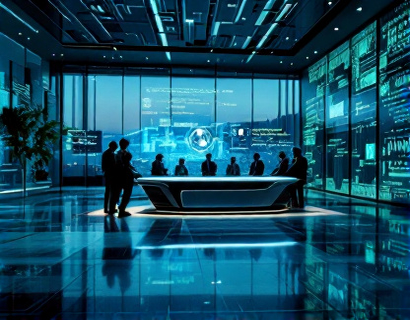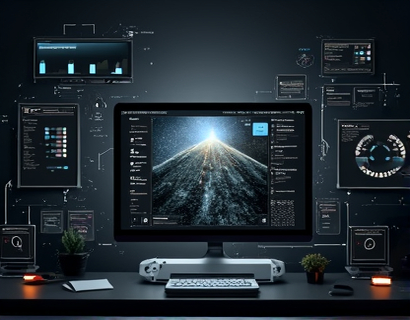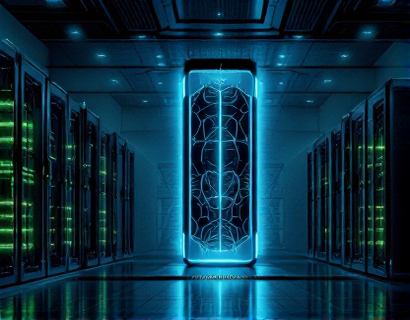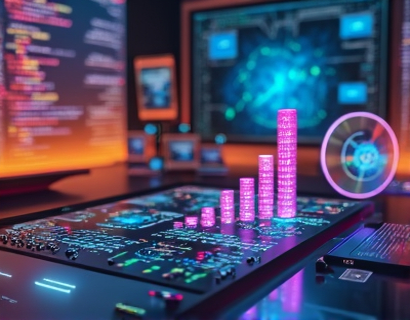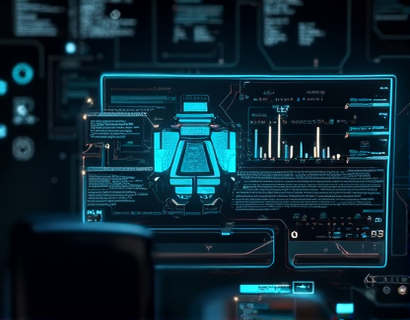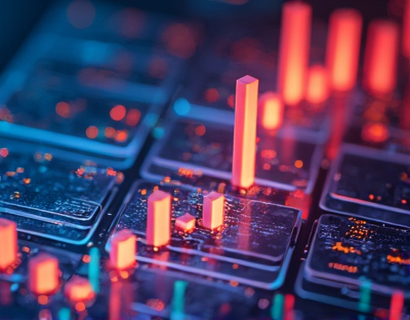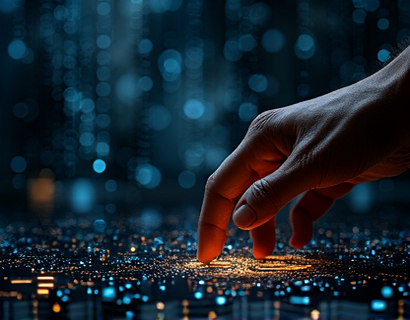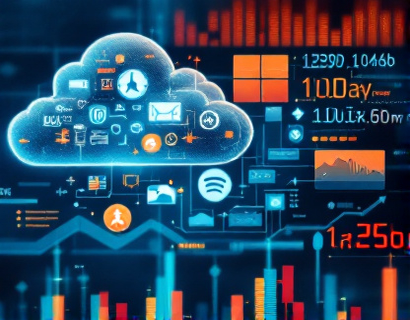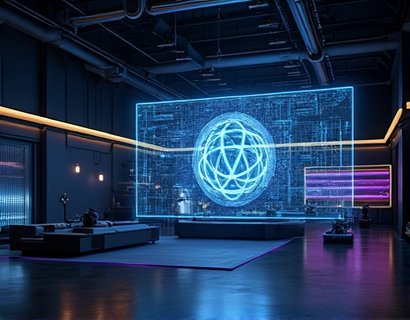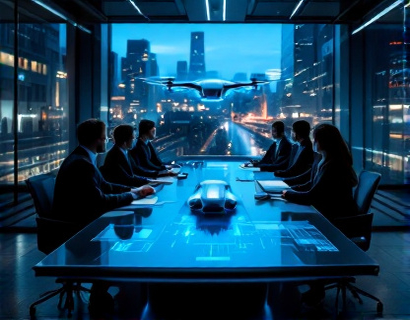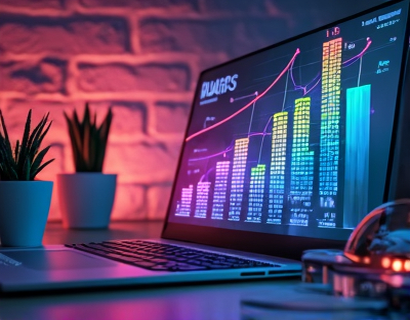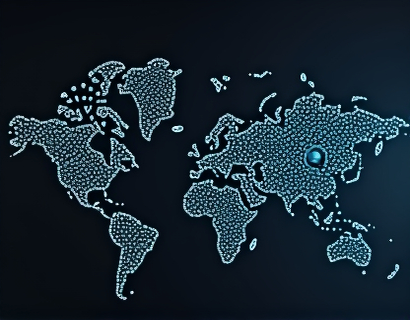Decentralized AI and Crypto: Transforming Digital Experiences for the Ucosystem Era
The convergence of decentralized technologies and artificial intelligence is ushering in a new era of digital innovation, often referred to as the Ucosystem. This era is characterized by the integration of blockchain, AI, and decentralized applications (dApps) to create more secure, transparent, and user-centric digital experiences. The fusion of these technologies is not just a technological advancement but a paradigm shift that is redefining how we interact with digital platforms and services.
The Ucosystem represents a decentralized network where users have greater control over their data and digital identities. This shift is driven by the need for privacy, security, and autonomy in an increasingly digital world. Decentralized AI, a key component of this ecosystem, leverages the power of AI algorithms while maintaining the decentralized nature of blockchain technology. This combination promises to unlock new potentials in data processing, machine learning, and user engagement.
Understanding Decentralized AI
Decentralized AI, or dAI, is an approach to artificial intelligence that operates on a decentralized network, typically a blockchain. Unlike traditional AI, which relies on centralized servers and databases, dAI distributes computing power and data across a network of nodes. This distribution enhances security, reduces the risk of single points of failure, and promotes transparency in data handling and algorithm decision-making.
The core idea behind decentralized AI is to harness the collective computing power of the network to perform complex tasks, such as training machine learning models. By doing so, dAI eliminates the need for centralized data repositories, which are often targets for cyberattacks and data breaches. Instead, data remains on users' devices or in decentralized storage solutions, ensuring greater privacy and control.
Benefits of Decentralized AI
One of the primary benefits of decentralized AI is enhanced security. Since data is not stored in a central location, the risk of large-scale data breaches is significantly reduced. Additionally, the use of blockchain technology ensures that all transactions and data exchanges are immutable and verifiable, adding an extra layer of security.
Another significant advantage is improved data privacy. Users retain ownership of their data and can choose how and when to share it. This is particularly important in an era where data privacy concerns are at an all-time high. Decentralized AI allows users to maintain control over their personal information without compromising the performance and capabilities of AI systems.
Decentralized AI also promotes greater transparency and accountability. The open nature of blockchain allows users to audit and verify the operations of AI models, ensuring that they are functioning as intended and without bias. This transparency builds trust between users and the systems they interact with, fostering a more reliable and ethical digital environment.
Crypto and Decentralized Applications
Cryptocurrency plays a crucial role in the Ucosystem by providing a decentralized medium of exchange and a means to incentivize participation in decentralized networks. Crypto assets, such as tokens, are used to reward users for contributing computational resources, data, or other forms of value to the network. This token-based incentive structure aligns the interests of network participants with the overall health and growth of the ecosystem.
Decentralized applications, or dApps, are the building blocks of the Ucosystem. These applications run on blockchain networks and utilize smart contracts to automate and enforce agreements without intermediaries. dApps cover a wide range of functionalities, from finance and gaming to social networking and content creation. The decentralized nature of these applications ensures that they are resistant to censorship and downtime, providing a more robust and reliable user experience.
Key Features of Decentralized Applications
One of the defining features of dApps is their decentralized architecture. Unlike traditional web applications that rely on centralized servers, dApps distribute their functions across a network of nodes. This distribution not only enhances security but also ensures that the application remains operational even if some nodes fail.
Smart contracts are another critical component of dApps. These self-executing contracts with the terms of the agreement directly written into code run on the blockchain, automatically enforcing and executing the terms of the contract when predefined conditions are met. This automation reduces the need for intermediaries, lowers transaction costs, and increases efficiency.
User sovereignty is a fundamental principle of dApps. Users have full control over their data and digital identities, and they can choose how to interact with the application and share their information. This level of control empowers users and fosters a more democratic and inclusive digital environment.
Impact on Digital User Experiences
The integration of decentralized AI and crypto into digital applications is transforming user experiences in profound ways. One of the most notable impacts is the enhancement of user engagement. Decentralized incentives and token-based reward systems motivate users to actively participate in the ecosystem, leading to higher engagement levels and more meaningful interactions.
Personalization is another area where decentralized AI shines. By leveraging decentralized data sources and AI algorithms, dApps can offer highly personalized experiences without compromising user privacy. Users can benefit from tailored recommendations, content, and services that are generated based on their preferences and behavior, all while maintaining control over their data.
The transparency and accountability provided by decentralized AI also contribute to a more trustworthy digital environment. Users can verify the operations of AI models and the integrity of the data used, reducing the risk of biased or misleading outcomes. This transparency builds trust and encourages more users to adopt and engage with decentralized applications.
Case Studies and Innovations
Several projects and platforms are already demonstrating the potential of decentralized AI and crypto in creating innovative digital experiences. For instance, some decentralized social media platforms use blockchain to give users ownership of their content and data, allowing them to monetize their presence through tokenized rewards. These platforms also employ decentralized AI to curate content and recommend connections based on user preferences, all while ensuring data privacy and security.
In the realm of finance, decentralized finance (DeFi) platforms leverage AI to offer sophisticated trading algorithms, risk management tools, and lending services. These platforms operate on blockchain networks, providing users with greater control over their financial assets and transactions. The use of decentralized AI in DeFi enhances the accuracy and efficiency of these services, making them more accessible and reliable.
Gaming is another area where decentralized AI and crypto are making significant strides. Decentralized gaming platforms use blockchain to create unique digital assets, such as in-game items and characters, which can be owned and traded by players. Decentralized AI is used to generate dynamic game environments and NPC behaviors, providing a more immersive and engaging gaming experience. Token-based incentive systems encourage players to contribute to the game's ecosystem, fostering a more collaborative and rewarding environment.
Challenges and Future Prospects
Despite the promising potential, the adoption of decentralized AI and crypto faces several challenges. One of the main hurdles is scalability. Current blockchain technologies often struggle to handle high volumes of transactions, which can limit the performance of decentralized applications. However, ongoing research and development in blockchain scalability solutions, such as layer 2 protocols and sharding, are addressing these issues.
Another challenge is the regulatory landscape. The decentralized nature of these technologies poses challenges for regulators, who are still grappling with how to oversee and govern decentralized networks. Clear and supportive regulations are essential to foster innovation while protecting users and maintaining market integrity.
Education and awareness are also critical for the widespread adoption of decentralized AI and crypto. Many users are still unfamiliar with these technologies and their benefits. Efforts to educate the public and provide accessible resources can help demystify these concepts and encourage more people to explore and utilize decentralized applications.
Looking Ahead
The future of the Ucosystem is bright, with decentralized AI and crypto poised to revolutionize digital experiences. As technology continues to evolve, we can expect to see more sophisticated and user-friendly decentralized applications that seamlessly integrate AI capabilities. The synergy between these technologies will drive innovation, enhance user experiences, and create new opportunities in various industries.
The adoption of decentralized AI and crypto is not just a technological trend but a fundamental shift in how we perceive and interact with digital systems. By empowering users, ensuring privacy, and promoting transparency, these technologies are laying the foundation for a more equitable and inclusive digital world. The Ucosystem represents the next frontier in digital innovation, and those who embrace it will be at the forefront of shaping the future.





